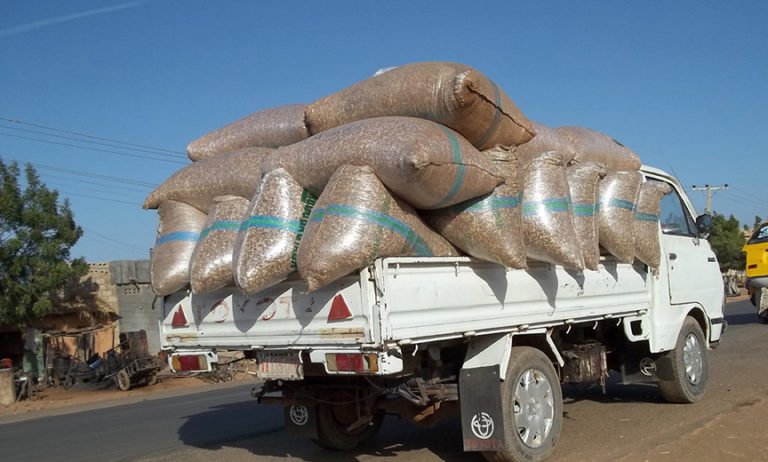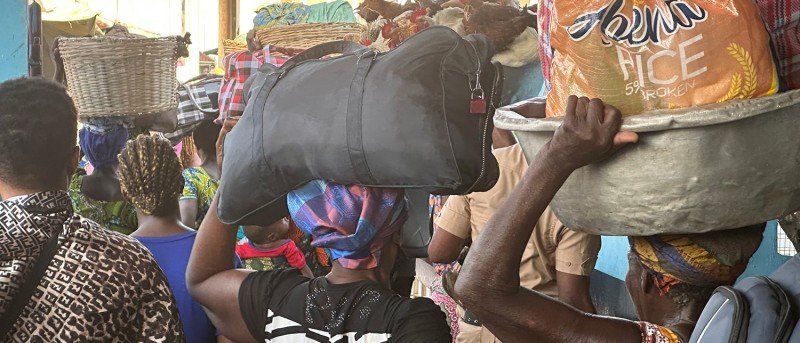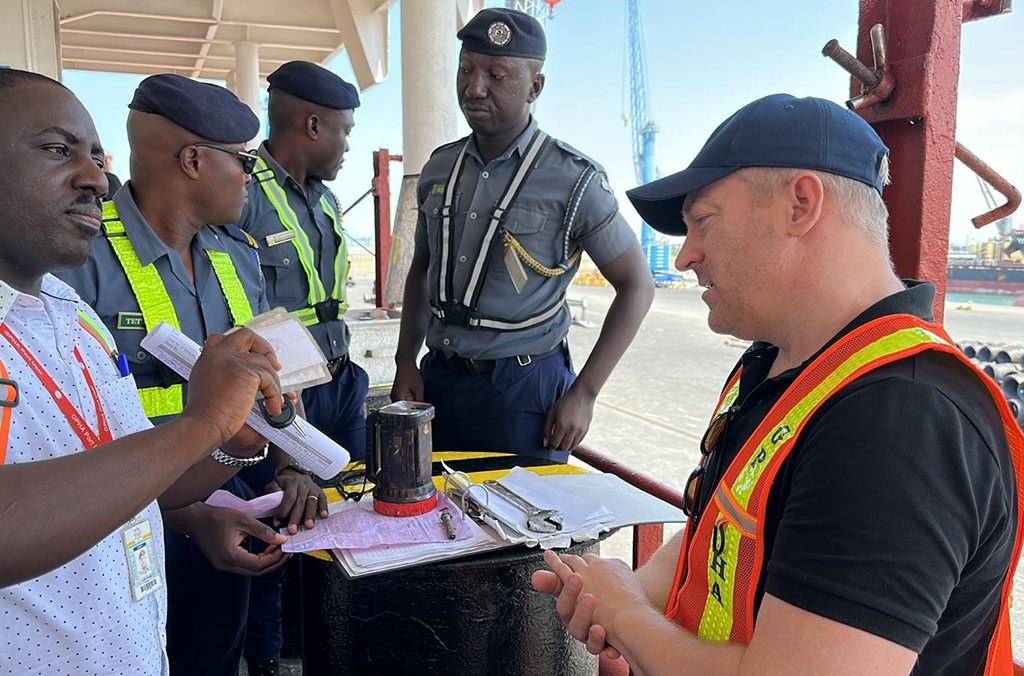According to the Food and Beverages Association of Ghana (FABAG), smuggling has surged in recent times, causing the economy to bleed while threatening the economic stability gained as the country loses about GH¢300 million worth of goods monthly.
The association warns of the eminent threat of smuggling to the country, stating that it can collapse the economy as millions are lost daily. The association added that these criminals, who continue to flood the Ghanaian market with untaxed and often substandard goods, are thriving at the expense of legitimate businesses struggling to pay the high taxes and incur huge operational costs.
Urgent public appeal is therefore being made by the association to the government to guard the country’s borders and strengthen its security to save revenue.
According to the Ghana Revenue Authority (GRA), Ghana loses over US$2.3 billion in tax revenue each year as smuggling increases and drains the economy of revenue for development.
Observation of the Afloa border through the Tema port revealed that a significant number of importers who illegally enter the country default in their tax and duties obligation, John Awuni, Executive Chairman of FABAG explained.

He came across the amount Ghana loses from smuggling by “evaluating the number of containers entering the country’s borders illegally and multiplying that figure by the average tax paid per container when properly cleared.”
Mr. Awuni added that smuggling has become so lucrative, in that importers find it profitable to pay unofficial fees at borders to officials than to pay the required duties at the Tema Port.
Smuggling in Ghana
FABAG acknowledged that the main reason for the growing illicit trade at Ghana’s borders, reducing the country’s revenue, is high import duties. In some cases, the cost of clearing goods at the ports is more than half the value of the import.

There is also growing corruption at the ports and borders of the country. Officials who have sworn to protect and defend the country’s borders and to work in the best interest of the country have fallen standards. Individual officials benefit at the expense of the country.
The association defined the condition as “a double tragedy” where “honest traders are being unfairly penalised while criminal networks prosper.”
FABAG revealed that based on intelligence and informants from industry partners and border communities, the most frequently smuggled goods, in large quantities, into and out of the country include rice, cooking oil, sugar, alcoholic beverages, soft drinks, cocoa, and textiles.
This unchecked flow, FABAG continued, is destroying Ghana’s local industries and denying the country of development projects. Ghana’s porous borders, especially through Togo to other countries like Nigeria, destroy Ghana’s ability to fund essential services like schools, clinics, and roads.
These products that are smuggled into the country are usually substandard in quality. Ghanaian legitimate businesses are faced with high operational cost, huge taxes, and they have to compete with untaxed and cheaply priced goods.
According to FABAG, “one of the most striking cases involves the illicit importation of Coca-Cola products. Authorities estimate that roughly 150,000 crates of Coca-Cola beverages are smuggled into Ghana each month from Nigeria alone, a trade worth over US$700,000,” adding that “this illegal flow not only undercuts lawful distributors but also deprives the government of critical tax revenue.“
Impact on Ghanaians
Smuggling often brings substandard quality of goods, undermining local industries, and destroying investor confidence. This illicit trade, if allowed to continue, would erode the economic stability gains, weaken the Ghana Cedi, discourage investment, and destroy jobs in the country through the collapse of indigenous manufacturing and distribution chains.

FABAG estimates that “Ghana is losing hundreds of millions of cedis every week due to unmonitored smuggling activities at both official and unofficial entry points.”
According to the statement by FABAG, “smugglers save between 30% and 40% on the taxes due to the state.” These smugglers go “through immigration and customs officers, and they pay them.”
He added that “demand for goods has dropped by 70%, and so if the government does not protect the borders, there is more motivation to smuggle goods into the country and sell quickly than to go through Tema and pay the 50 to 54% total taxes and then struggle in the market.”
According to the association, “it is disheartening that compliant businesses are subjected to rigorous tax regimes and levies while smugglers thrive unchecked.”
Proposed Measures by FABAG
FABAG called on the Customs Division of the Ghana Revenue Authority, the Ministry of Trade and Industry, and the National Security agencies to beef up security at the borders, deploy modern surveillance systems, and strengthen collaboration with local communities to curb the menace.

Ahead of the 2026 Budget statement, FABAG calls on the Ministry of Finance to review the heavy duties and taxes, as well as simplify clearance procedures. Urgent reforms are needed at our borders and ports.
FABAG alerts that the crisis is an economic and a national security threat, and the “government cannot continue losing significant revenue while burdening Ghanaians and businesses with new electricity and water tariffs.”
The GRA responded by collaborating with companies to address smuggling head-on. GRA recently met with Coca-Cola Ghana’s Managing Director, Felix Gomis, in Accra for further discussions. Both sides are committed to tackling smuggling.
“We understand the diverse impact of smuggling—not just on our business, but on the nation’s ability to thrive. Through collaboration, we believe we can significantly reduce this menace.”
Coca-Cola Ghana’s Managing Director, Felix Gomis
“Every cedi lost to smuggling is a lost opportunity—for a child to go to school, a clinic to be built, or a road to be paved. The human cost of the country’s smuggling epidemic.”
GRA Commissioner-General Anthony Kwasi Sarpong
READ ALSO: Health Minister Drops Bombshell: Vendor Holding Ghana’s Health Data Hostage























